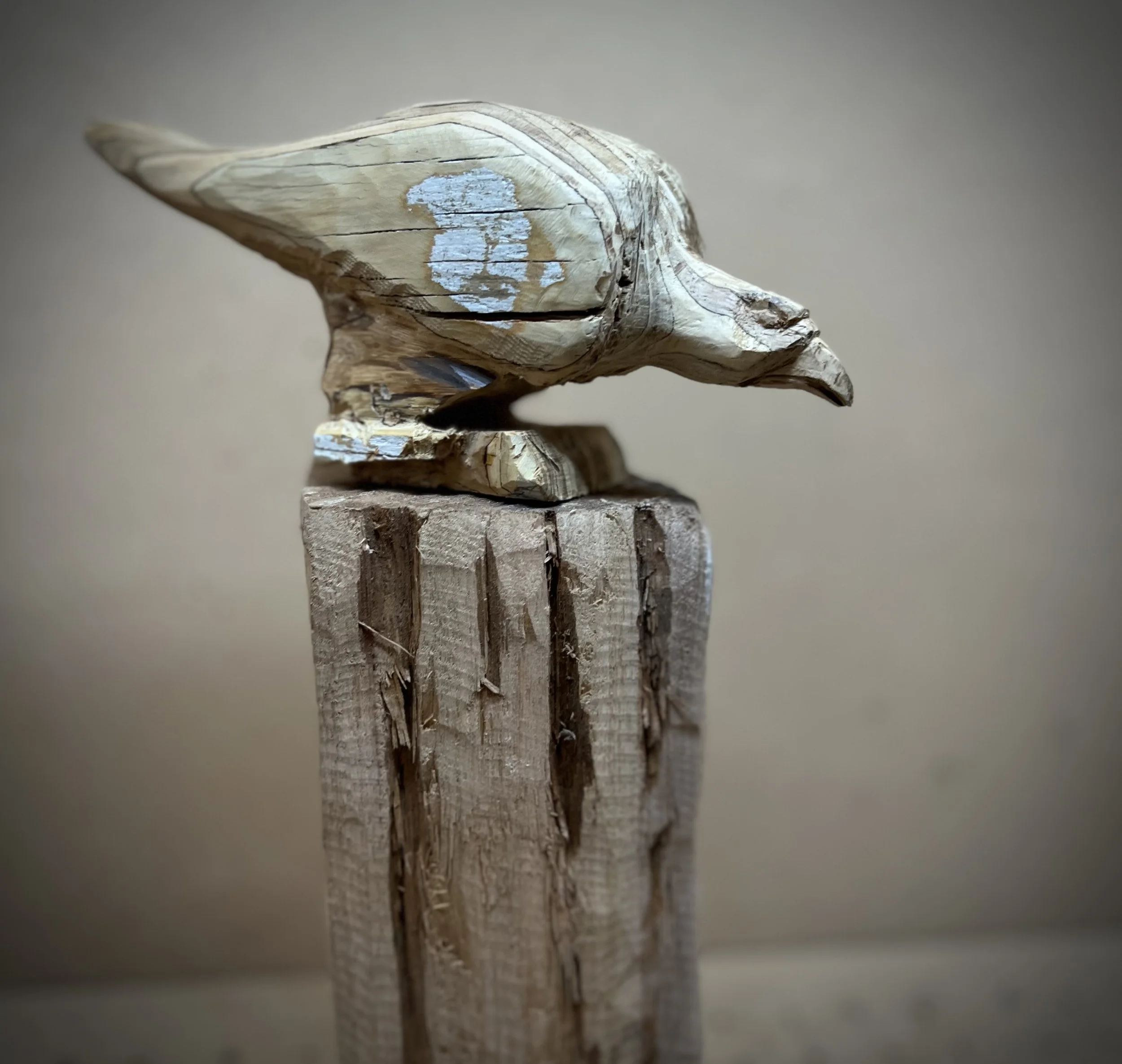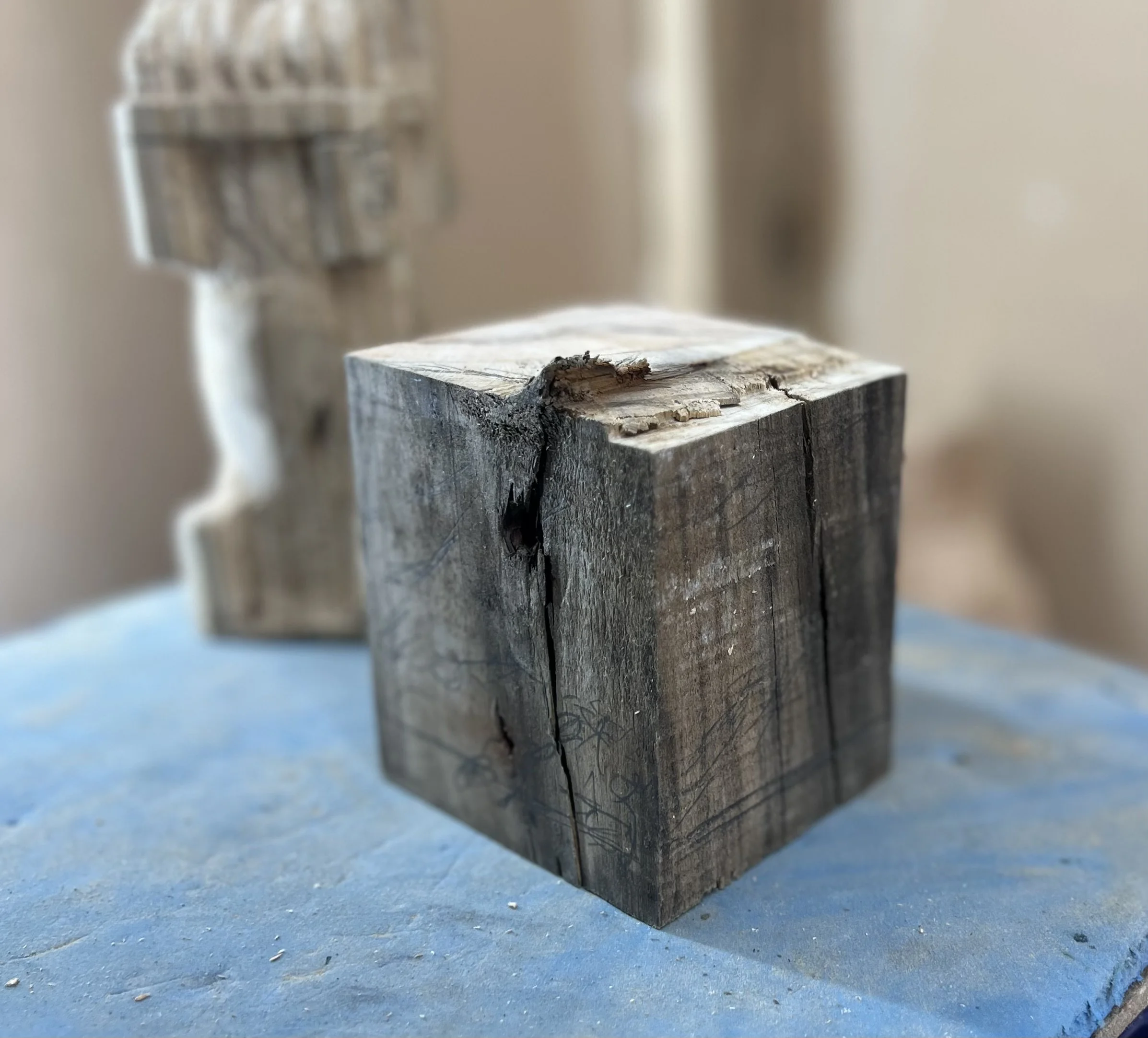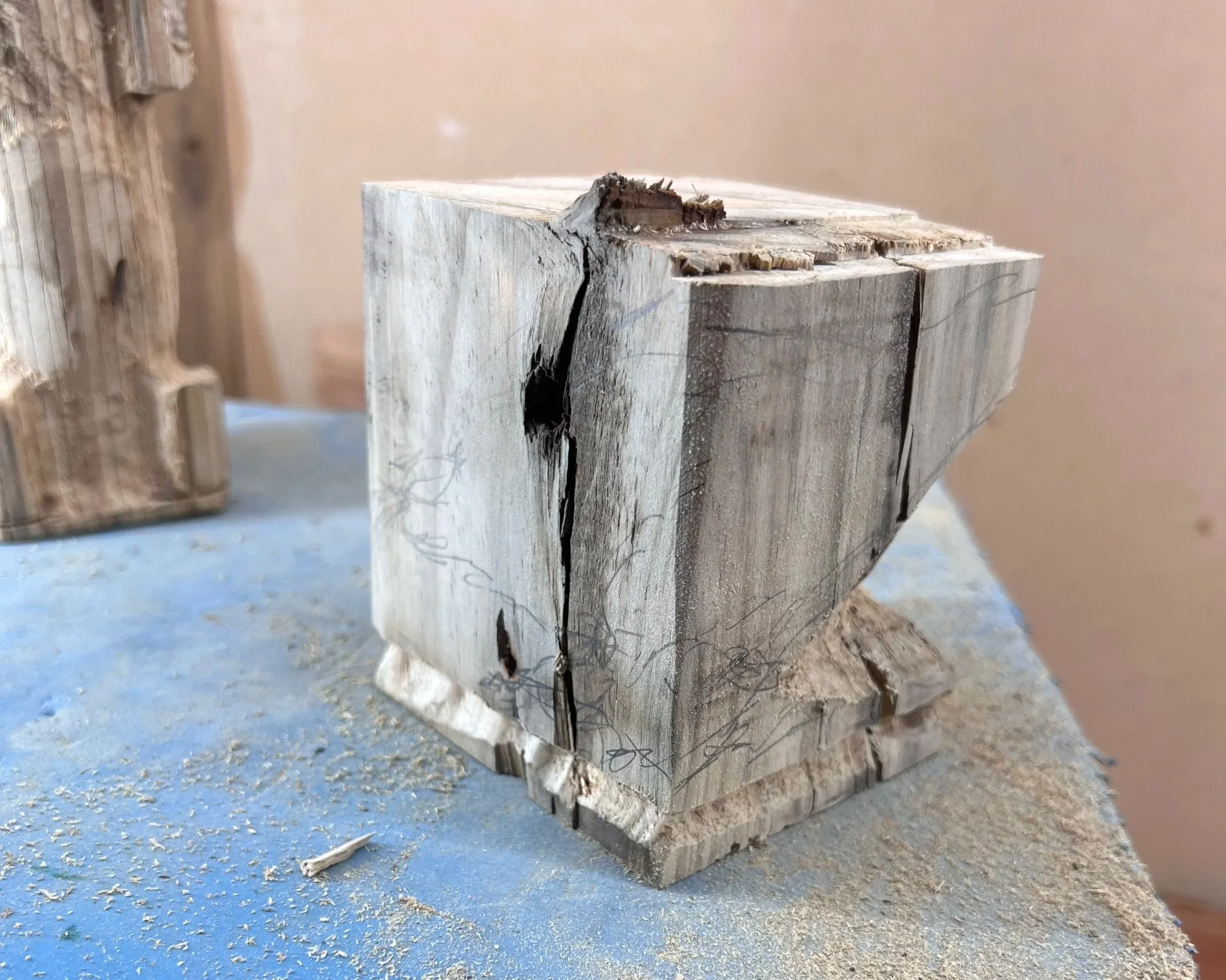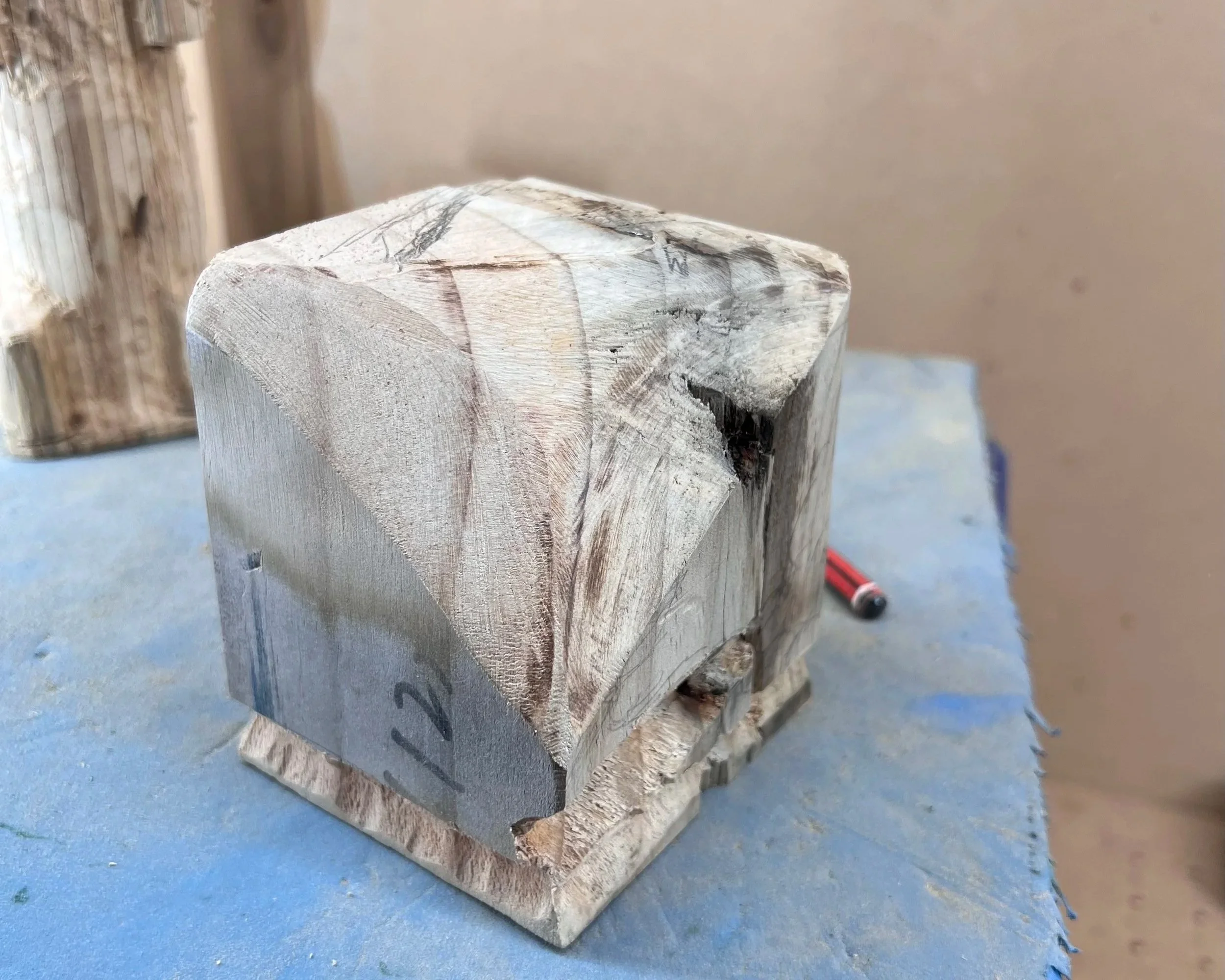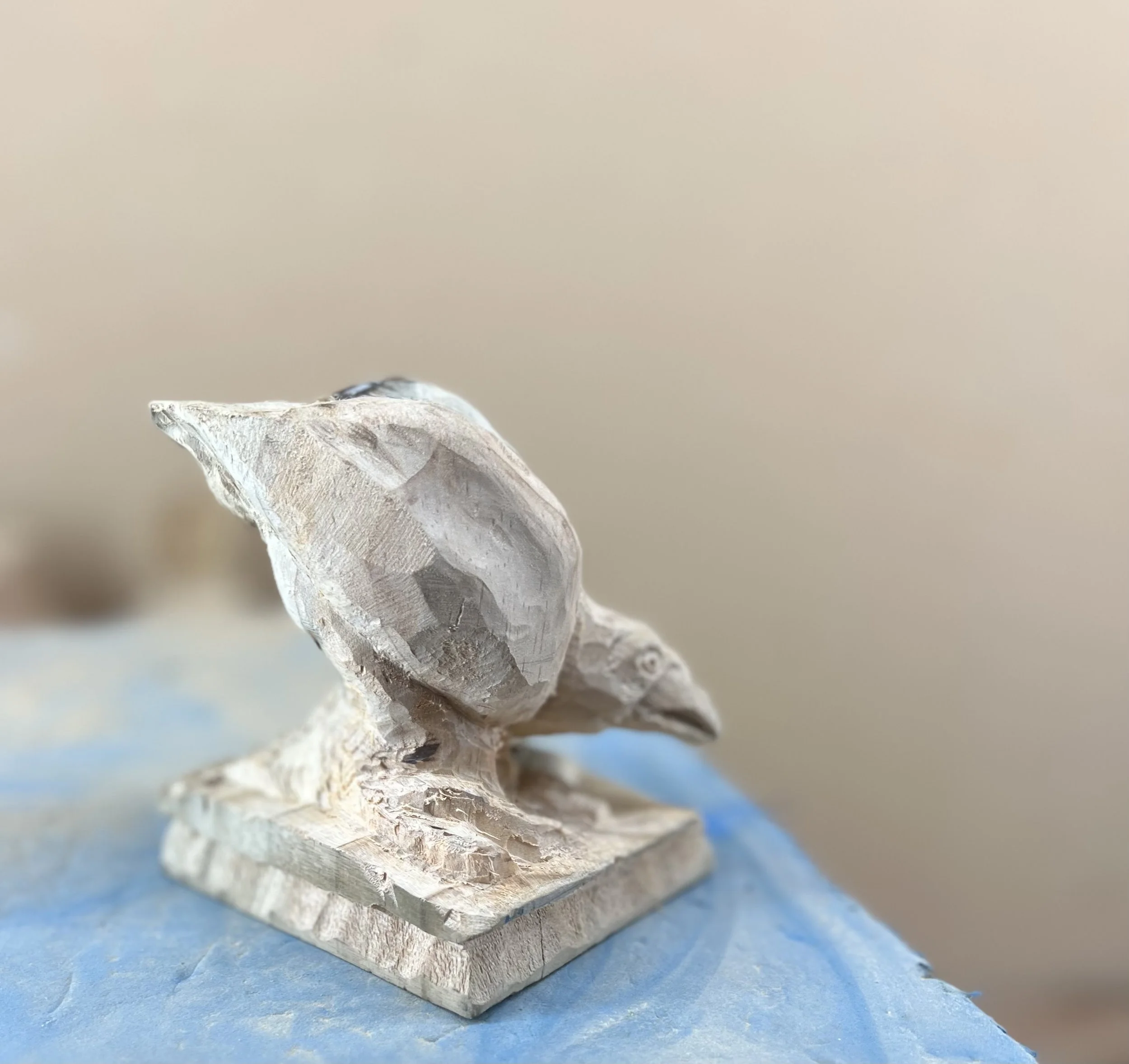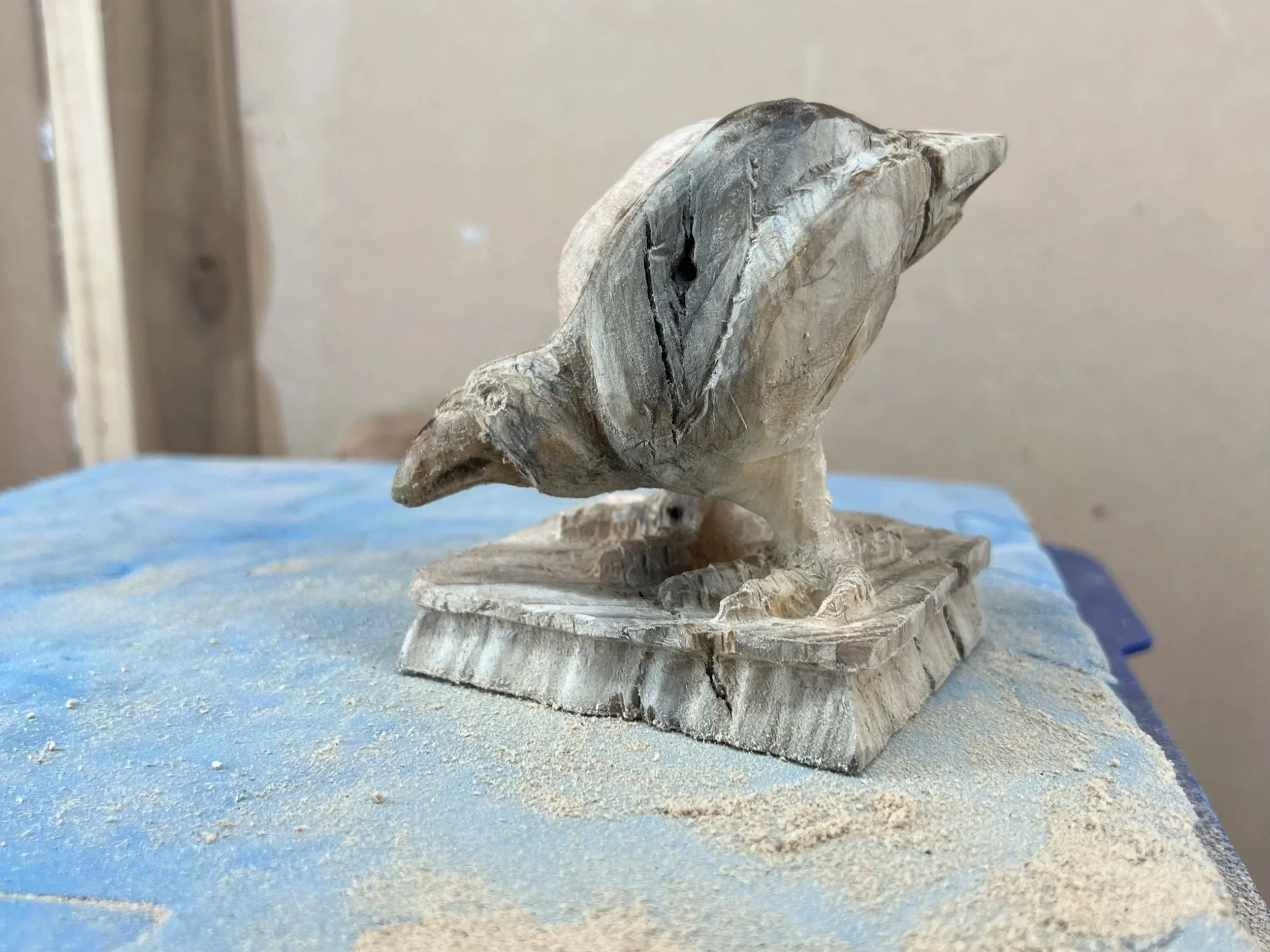Behind every complaint:
The commitment waiting to be heard
The block of wood was from an old fence post. it was weathered, worn, and tough as nails… and, I felt, it had a lesson in it for me (if I could help that insight come to the surface).
Yet, like my profession, my retreat into sculpture is full of opportunities to learn through practice. In my sculpture, one of these is that, I’ve realised, I tend to get caught by the details. As soon as I start to get excited by one component of the sculpture, and in my concentration on these, I forget about the whole story, the whole form of the piece.
This weekend I told myself I wasn’t going to do this. I was going to practice form, and only once that was correct, would I allow my shift to detail.
‘A lesson reappears’
A half-finished (now out of proportion) sculpture
From the Artist’s Wood Shed Studio Retreat
But even as I began, I broke my own rule.
I had wanted to create an Australian Magpie, and specifically the moment that it lowers its head, and with inquisitive yet ‘demanding’ energy, insisting on your attention.
However, I found myself getting caught with that idea, the flash of attitude, and how this manifested in the eyes, the beak, and halfway through, I realised the proportions of the rest of the bird were off.
I left the wood shed that day, thinking about that magpie. Not the sculpture exactly, but rather what it was revealing to me.
In my coaching work, I see how often Good Leaders do something similar. They tend to others before tending to themselves. They know that when a team member complains, it usually means that person cares. It means that some value or commitment is being rubbed raw. And a Good Leader listens for what matters beneath that frustration.
But when these same Good Leaders feel their own friction (a private complaint, a sense of weariness, a quiet ‘this isn’t working’) they don’t give themselves the same understanding. Instead, they silence it. They call it ‘being a complainer’. They tighten their jaw, keep a stiff upper lip, and carry on.
In their 2009 book, Immunity to change, Robert Kegan and Lisa Laskow Lahey describe these moments as signs of hidden commitments. Unspoken promises to ourselves about how we must appear or behave. We may be deeply committed to care and competence, yet equally committed to never appearing selfish, weak, or dissatisfied. The results are the inner stalemates that arise.. the complaint that never finds its form.
On Sunday, I went back to the studio, and began to work again. The second block, lighter, a bit ‘worn’ and rugged, still with some nails in it that were too rusted to pull, had seen some time. Yet I knew that it too had a story to tell. As the rough cuts fell away, the shape of the magpie emerged. Head down. Beak opening. About to bring itself to ‘voice’ something important…
Cantankerous. Defiant. Alive.
The Pivot of Insight
I laughed when I saw it… because in that stubborn little bird I saw something of myself and of the leaders I work with. The same energy that makes us bristle, that drives us to complain, is often the same energy that keeps us loyal, engaged, and unwilling to give up on what matters.
Behind every ‘complaint’ is a Commitment. The magpie isn’t just making noise. It’s guarding something precious.
The words we use for ourselves matter. ‘Difficult’, ‘Demanding’, ‘Cantankerous’. They can become cages, or with a bit of awareness, they can become humorous reminders of what we care about most.
‘Sometimes the most cantankerous part of our identity is merely the part that refuses to stop caring’
From The Artists Woodshed Studio Retreat
And when you find yourself bristling, when something in you wants to ‘complain’, pause before you dismiss it. Ask:
What commitment is this revealing?
What do I care about enough to risk sounding ‘cantankerous’?
Listening for Commitment
Take a moment and think back to a recent situation where you felt frustration, resistance, or the urge to complain. Before you move past it, pause and listen.
Notice the voice
What did you want others to understand or acknowledge in that moment? What need or value was trying to be seen?
Name the commitment
Beneath the irritation, what principle or care might be ‘speaking’? Perhaps fairness, integrity, recognition, or respect for time and effort?
Reframe the complaint
If this frustration were a loyal messenger, what might it be asking you to protect, restore, or express more clearly?
Take one compassionate action
What is one, small, constructive step you can take that honours that commitment, without silencing the voice that revealed it?
If this resonates…
If you’ve noticed your own ‘cantankerous magpie’ moments (those flashes of frustration that might be pointing to something you care deeply about) this is exactly the kind of conversation I love to explore in coaching.
Together, we can work to uncover the commitments behind the complaints, and learn how to honour them with clarity and compassion.
Reach out if you’d like to explore this in a coaching conversation.

